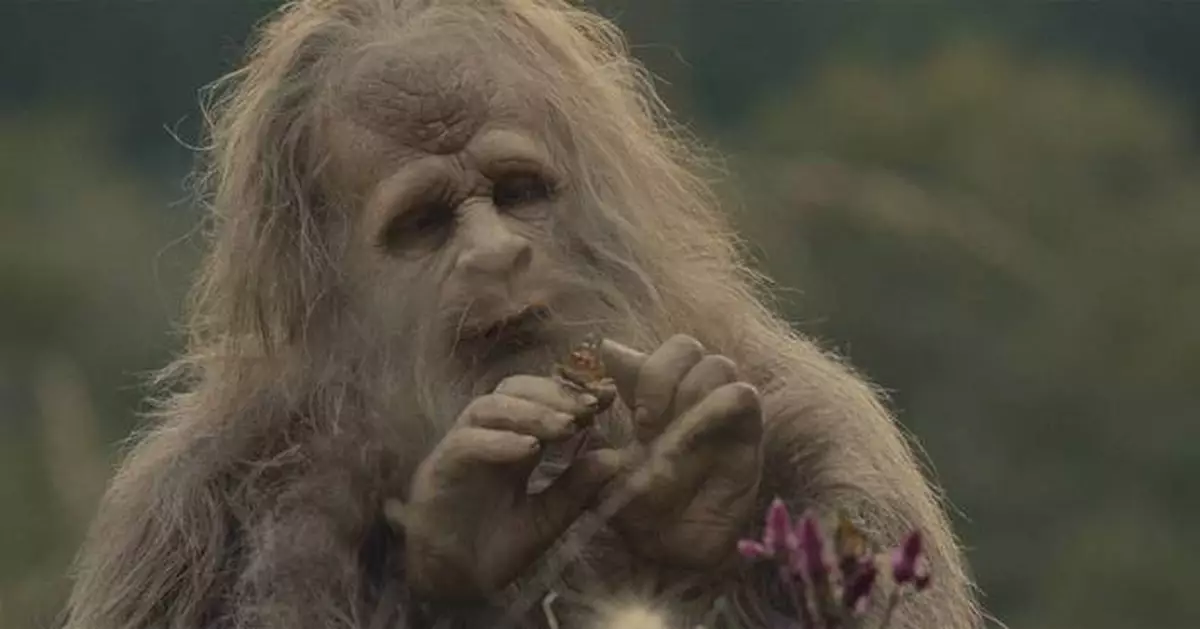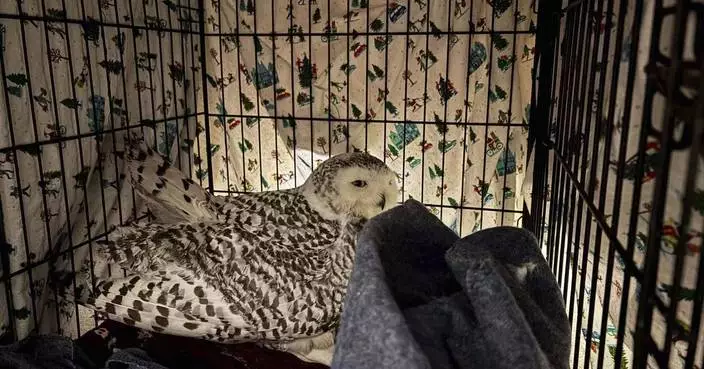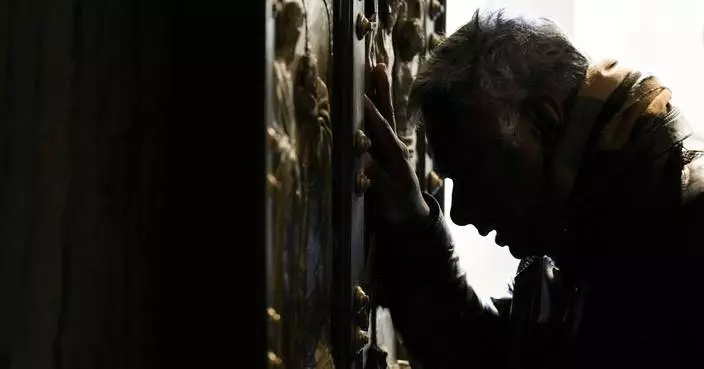Do you reckon Sasquatches snore? C'mon, you know the answer, deep down. Of course, they do. They snore and eat noisily and pick bugs out of each other's fur and then eat those bugs, noisily.
What else do Sasquatches do, you wonder? One of the wildest movies of the year — or the century, for that matter — suggests they mourn, cuddle, bury their dead, enjoy throwing rocks in rivers, make art and wonder if they're alone in the world.
Click to Gallery
This image released by Bleeker Street shows Riley Keough in a scene from the film "Sasquatch Sunset." (Bleeker Street via AP)
This image released by Bleeker Street shows Jesse Eisenberg in a scene from the film "Sasquatch Sunset." (Bleeker Street via AP)
Emily Meade attends the premiere of "Sasquatch Sunset" at Metrograph, Monday, April 1, 2024, in New York. (Photo by Evan Agostini/Invision/AP)
Christophe Zajac-Denek attends the premiere of "Sasquatch Sunset" at Metrograph, Monday, April 1, 2024, in New York. (Photo by Evan Agostini/Invision/AP)
Jihae Kim attends the premiere of "Sasquatch Sunset" at Metrograph, Monday, April 1, 2024, in New York. (Photo by Evan Agostini/Invision/AP)
This image released by Bleeker Street shows Jesse Eisenberg and Christophe Zajac-Denek in a scene from the film "Sasquatch Sunset." (Bleeker Street via AP)
This image released by Bleeker Street shows Jesse Eisenberg, Riley Keough, and Nathan Zellner in a scene from the film "Sasquatch Sunset." (Bleeker Street via AP)
This image released by Bleeker Street shows Jesse Eisenberg in a scene from the film "Sasquatch Sunset." (Bleeker Street via AP)
Even so, “Sasquatch Sunset” from filmmaking brothers David and Nathan Zellner, is a bewildering 90-minute, narrator-less and wordless experiment that's as audacious as it is infuriating. It's not clear if everyone was high making it or we should be while watching it.
Nathan Zellner, Jesse Eisenberg,Riley Keough and Christophe Zajac-Denek play a makeshift family of four Sasquatches, lost in hair suits and prosthetics and communicating only in grunts, snorts and howls. They also pee a lot.
Why the filmmakers hired such starry actors instead of paying scale to some unknowns is puzzling. None of the Sasquatches do more than what could be called Method Chimpanzee — jumping up and down, whooping and growling. A group of real chimps would ding the quartet for overacting.
As an exercise in creating empathy for monsters, “Sasquatch Sunset” does an admirable job. In the first frames, when we see a loping Bigfoot in the middle distance — and then three more — it's clear that they are telling this story, not the folks who usually capture them in shaky camera frames.
There are plenty of Sasquatches-are-just-like-us moments, like when one brings flowers to seduce another or two Bigfoots comfort each other after a death. Perhaps the most poignant moments are when they pound trees with sticks in unison, a rhythmic question that echoes through the valley. It's a call, waiting for a response — anyone out there like us?
But then there's a lot of gross-out stuff. We've mentioned the peeing, but it turns out that Sasquatches sneeze, procreate loudly and like to touch their genitals and then smell their fingers. They can also poo on demand and throw that poo to scare off predators.
One juvenile Bigfoot makes his hand into a makeshift puppet and talks to it — like a nod to the kid in “The Shining” — and another considers inserting his manhood into a small tree hole, like a prehistoric riff off that famous scene in “American Pie.”
Both things can be true, of course: Bigfoot can be disgusting and deep at the same time. But it's not always clear what the filmmakers are going for here — satire, metaphor, sympathy, naturalism or gross-out comedy?
The Sasquatches reveal deeply human characteristics and may be stand-ins for our innocent pasts, a lost link in our evolution, showing the unrelenting violence of natural life or just the voiceless among us now. Or the filmmakers might just like the image of tossing poo.
Gorgeous vistas of pristine forests and misty valleys don't help us figuring out when this all takes place but gradual clues emerge, including evidence of logging and a truly surreal bit at a human camping site, scored by the Erasure song “Love to Hate You.” But if the Zellners had an environmental lesson here, they shanked it.
There's great music from The Octopus Project, veering from bright electric guitar noodles to sci-fi electronic dread reminiscent of “2001: A Space Odyssey.” Stick through the roll of end credits and see one of the best credits ever in film: Sasquatch Wrangler. You don't see that every day. You don't see Sasquatch movies every day, either, but this is one you should probably let lope past you.
“Sasquatch Sunset,” a Bleecker Street release that lands in some theaters on April 12 and goes wider April 19, is rated R for “for some sexual content, full nudity and bloody images.” Running time: 89 minutes. One star out of four.
MPAA definition of R: Restricted. Under 17 requires accompanying parent or adult guardian.
Online: https://bleeckerstreetmedia.com/sasquatch-sunset
Mark Kennedy is at http://twitter.com/KennedyTwits
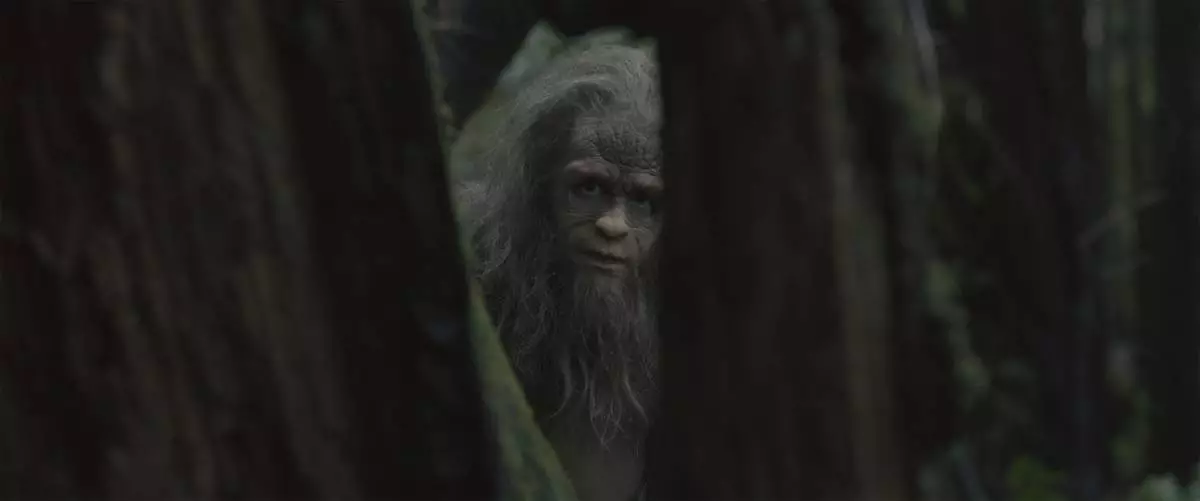
This image released by Bleeker Street shows Riley Keough in a scene from the film "Sasquatch Sunset." (Bleeker Street via AP)
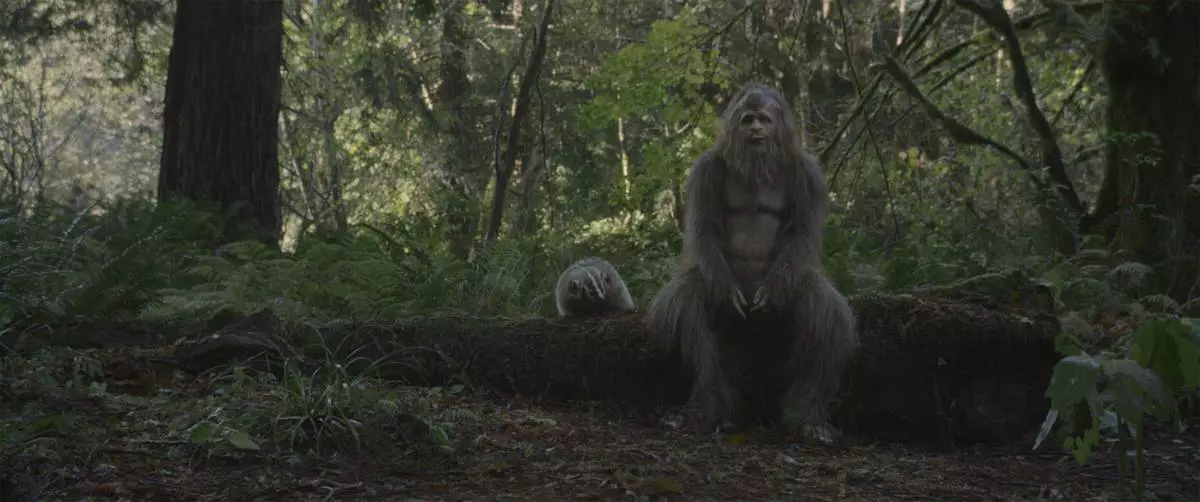
This image released by Bleeker Street shows Jesse Eisenberg in a scene from the film "Sasquatch Sunset." (Bleeker Street via AP)

Emily Meade attends the premiere of "Sasquatch Sunset" at Metrograph, Monday, April 1, 2024, in New York. (Photo by Evan Agostini/Invision/AP)

Christophe Zajac-Denek attends the premiere of "Sasquatch Sunset" at Metrograph, Monday, April 1, 2024, in New York. (Photo by Evan Agostini/Invision/AP)

Jihae Kim attends the premiere of "Sasquatch Sunset" at Metrograph, Monday, April 1, 2024, in New York. (Photo by Evan Agostini/Invision/AP)
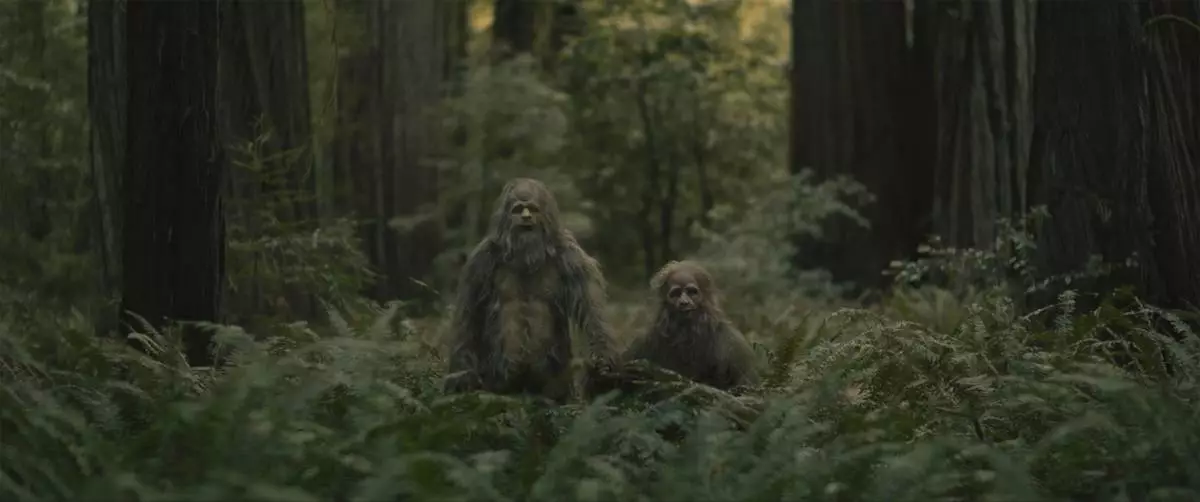
This image released by Bleeker Street shows Jesse Eisenberg and Christophe Zajac-Denek in a scene from the film "Sasquatch Sunset." (Bleeker Street via AP)

This image released by Bleeker Street shows Jesse Eisenberg, Riley Keough, and Nathan Zellner in a scene from the film "Sasquatch Sunset." (Bleeker Street via AP)
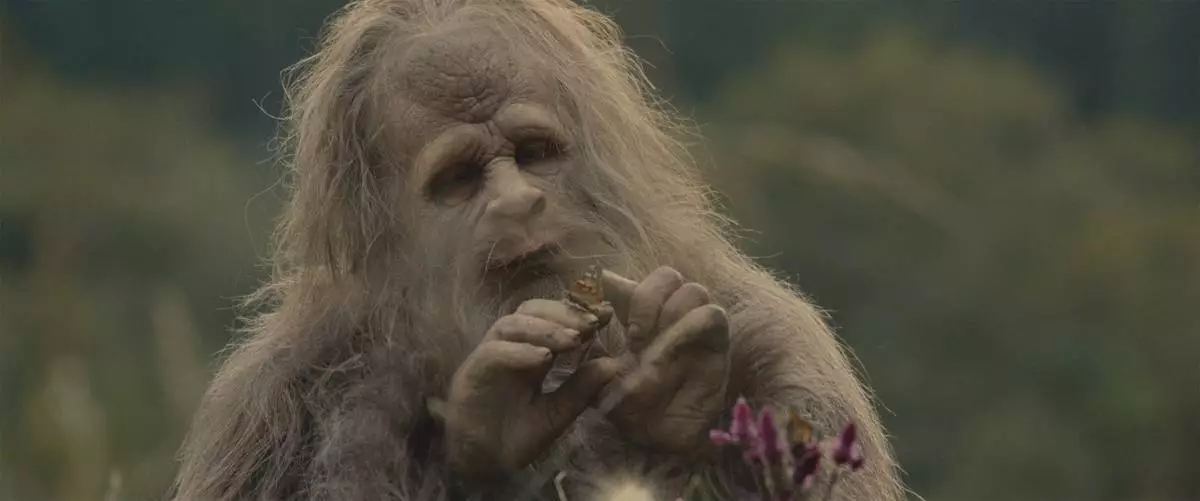
This image released by Bleeker Street shows Jesse Eisenberg in a scene from the film "Sasquatch Sunset." (Bleeker Street via AP)
PARAMARIBO, Suriname (AP) — Desi Bouterse, a military strongman who led a 1980 coup in the former Dutch colony of Suriname then returned to power by election three decades later despite charges of drug smuggling and murder, has died. He was 79.
Suriname's President Chan Santokhi on Wednesday reflected on Bouterse's outsized legacy in a message of condolences to his family and called on the nation to "keep calm and maintain order.”
Vice President Ronnie Brunswijk wrote on Facebook that Bouterse’s “life had a lasting impact on our country and his efforts will not be forgotten.” The cause of death was not immediately known.
Bouterse was applauded by supporters for his charisma and populist social programs. For his opponents, he was a ruthless dictator who was convicted of drug trafficking and extrajudicial killings.
In December 2023, Bouterse was sentenced to 20 years in prison for the murders of 15 opponents of the then-military government i n December 1982, ending a historic 16-year legal process. He then vanished and never served time in jail despite the sentencing.
“There is nobody who has shaped the history of Suriname since its independence like Desi Bouterse,” said Dutch historian Pepijn Reeser, who wrote a biography of Bouterse in 2015.
He said that Bouterse was the first to overcome the stark social class divide that once defined Suriname.
“Before the coup, it was unthinkable somebody from the lower class could become the most powerful man of the country. But he was also the first post-colonial leader to resort to political violence, and the first to use Suriname as a transshipment point for illegal narcotics,” Reeser said.
Early Wednesday, dozens of supporters gathered outside Bouterse’s home where his wife lived, tears streaming down their faces. Many were dressed in purple, the color of his political party.
Born Oct. 13, 1945, on a former sugar plantation near the capital, Paramaribo, Bouterse left for the Netherlands in 1968, as did thousands of other Surinamers in that era to seek adventure or a better life in Europe. Suriname was then still a colony, and as a Dutch citizen he was eligible for conscription, so he joined the armed forces a few months after arriving.
He graduated from the Royal Military School and served at several Dutch army bases in the Netherlands and Germany. Bouterse returned to Suriname two weeks before it became an independent republic on Nov. 25, 1975, and joined its newly formed military. The initial optimism of young military men in serving their own country quickly turned into frustration over widespread favoritism and corruption in the consecutive governments of Prime Minister Henck Arron. When Arron forbade the troops from unionizing, 16 young soldiers led by Bouterse overthrew the government on Feb. 25, 1980, and made him the de facto ruler.
“We took control because we want to save this country from ruin. There needs to be a total change of mentality to transform Suriname into the paradise it used to be,” Bouterse said to a journalist a few hours after the coup.
When promised democratic reforms did not materialize, opposition to Bouterse’s military regime grew rapidly, culminating in the killing of 15 men on Dec. 8, 1982. The victims were journalists, lawyers, military and university teachers, and their slaying became known as the “December Murders.”
“The executions were a severe blow to the rule of law in Suriname from which the country still has not fully recovered,” said Eddy Wijngaarde, a brother of journalist Frank Wijngaarde, one of the victims. “The impact of the December Murders goes beyond the death of these 15 men. Since December 1982, Bouterse used fear for him as a means to secure his powerful positions and personal interests.”
Shocked by the killings, the Netherlands suspended all development aid. One of Bouterse's former bodyguards, Ronnie Brunswijk, took up arms in 1986 in a bid to oust the dictator. For six years, the country was torn by a civil war in which both sides violated human rights and hundreds died.
International isolation and the lack of domestic support for his military regime led Bouterse to accept free elections in November 1987. He established his own political movement, the National Democratic Party, but won only three of 51 seats in Parliament. Nonetheless, as commander of the armed forces, Bouterse kept a tight grip on the newly elected government of President Ramsewak Shankar.
Following a conflict between Bouterse and Shankar in 1990, the army seized power again, dismissing Shankar with a phone call. Civilian rule was restored the following year. Bouterse officially left Suriname’s army in 1993, and became what he described as a fulltime politician and businessman.
In 1999, a Dutch court sentenced him in absentia to 11 years in prison for smuggling more than 1,000 pounds of cocaine to the Netherlands. The absence of an extradition treaty between the nations meant he never served his sentence.
In 2007, Suriname’s military court started a trial against Bouterse and 24 others for their alleged roles in the December Murders of 1982.
Bouterse was painted as the chief instigator by the prosecution. He maintained he was not present at the murders, although he said he accepted “political responsibility” as army commander.
“I want to apologize to all the relatives of the victims. But to think you can lock me up? Never, niemals, jamais, nunca,” Bouterse said during a televised speech in March 2007.
While the trial dragged on for more than a decade, the former military leader reinvented himself as a politician by preaching nationalism and attracting support from many ethnic groups in Suriname, whose people have African, Asian, Amerindian, European and Middle Eastern roots.
He was elected president for the first time in 2010. Instead of avoiding his past, he celebrated it. He quickly declared Feb. 25, the day of his military coup in 1980, a national holiday. He handed out high-ranking government jobs to other December Murders suspects and coup plotters.
“Despite his controversial past, Bouterse was able to embody a new political dynamism, with strong leadership and a promising vision for the future,” political scientist Hans Breeveld of the Anton de Kom University in Suriname said in an interview in 2015.
Inspired by the socialist politics of Venezuela's then-President Hugo Chávez, Bouterse continued construction of social housing, increased social welfare benefits and raised the government pension.
These popular measures secured his reelection for another five-year term in 2015, but also proved to be an unpayable burden for the state. Large budget deficits and rampant inflation ensued. Consecutive devaluations of the Surinamese dollar in 2016 resulted in the currency losing more than half of its value in just a year.
“The reckless economic policies of Bouterse have put a huge burden on our future generations, who are forced to repay millions of dollars of loans to international creditors,” Surinamese economist Winston Ramautarsing told The Associated Press in 2016.
With his support dwindling during his second term, Bouterse resorted to the tactics that he used during his dictatorship, including threatening the judges of his own murder trial during public events. High school history textbooks that mentioned the December Murders were banned. He regularly fired Cabinet ministers while blaming them for Suriname’s problems.
In 2012, the Bouterse administration proclaimed an internationally criticized amnesty law for the December Murders in an attempt to halt the murder trial. However, the law was ruled inapplicable by the military court in 2016, and in June 2017, the prosecutor recommended a 20-year prison sentence for Bouterse.
“If it was God who made me president, who is this judge to try to send me away?” Bouterse said. He tried to force out the attorney general, but the latter refused to quit.
A verdict in the trial was expected in 2018. Bouterse said during a speech in August 2017 that he “already knew” he would be reelected for a third five-year term in the 2020 election. But he had been making regular trips to Cuba that were described as routine check-ups, and after returning in September 2017 from a monthlong stay, his office admitted the president had undergone surgery, although it refused to disclose more details.
Bouterse was married twice and had three children, one son and two daughters. His son, Dino Bouterse, was serving a 16-year prison sentence in the U.S. for drug trafficking.
Former AP Employee Pieter Van Maele contributed to this story.

FILE - Suriname's President Desi Bouterse, re-elected to a second, five-year term, attends his swearing-in ceremony in Paramaribo, Suriname, Aug. 12, 2015. (AP Photo/Ertugrul Kilic, File)










